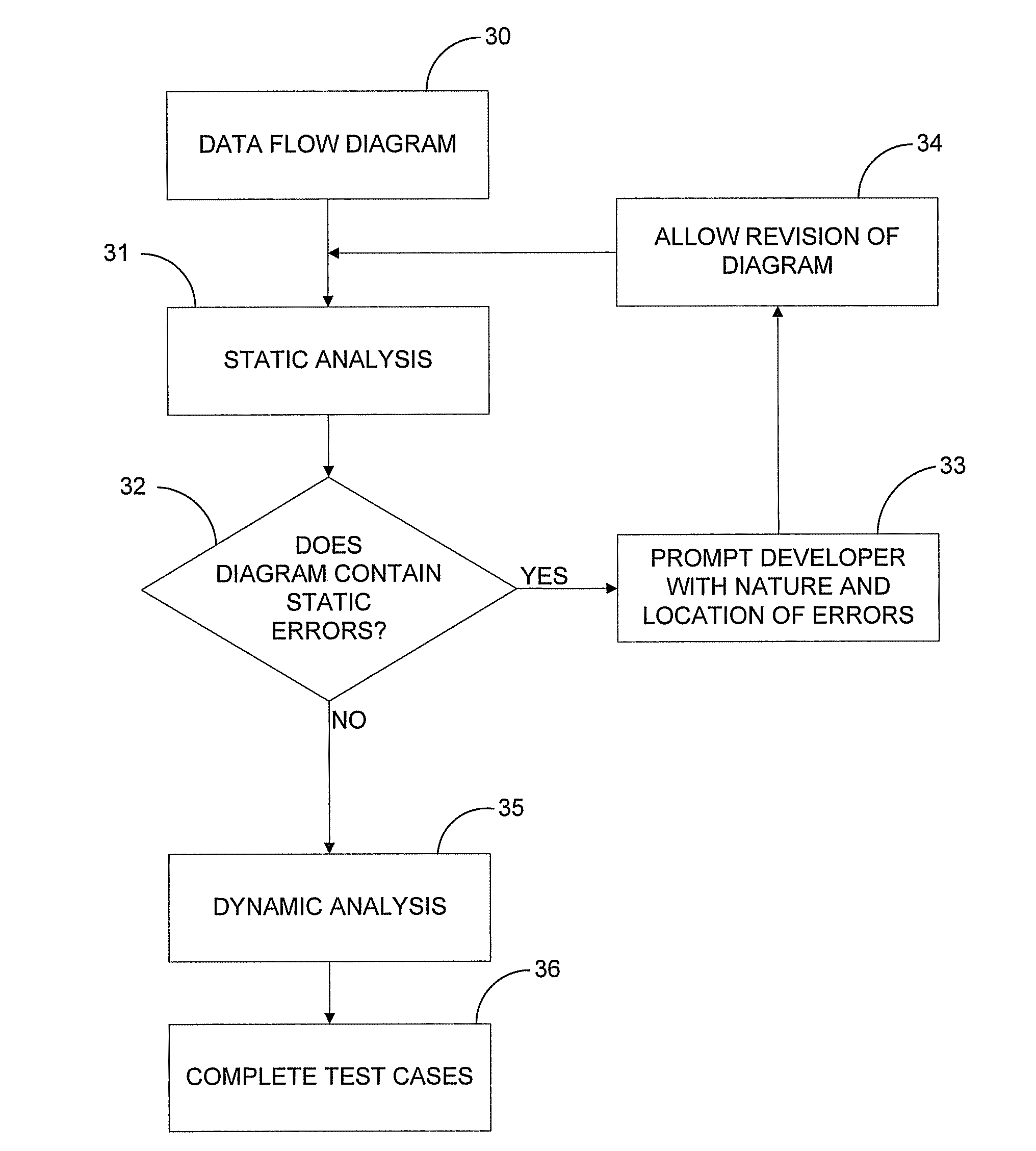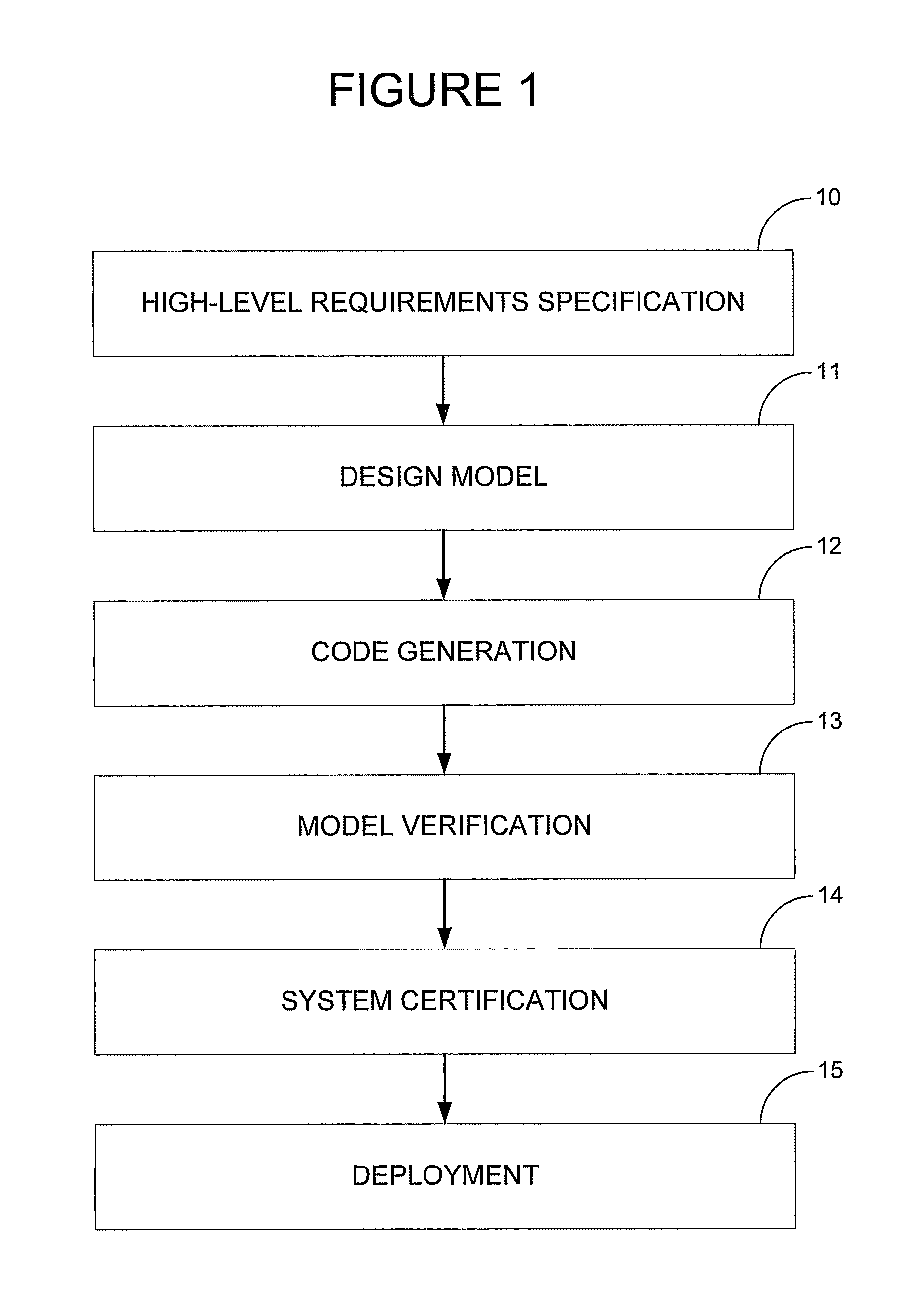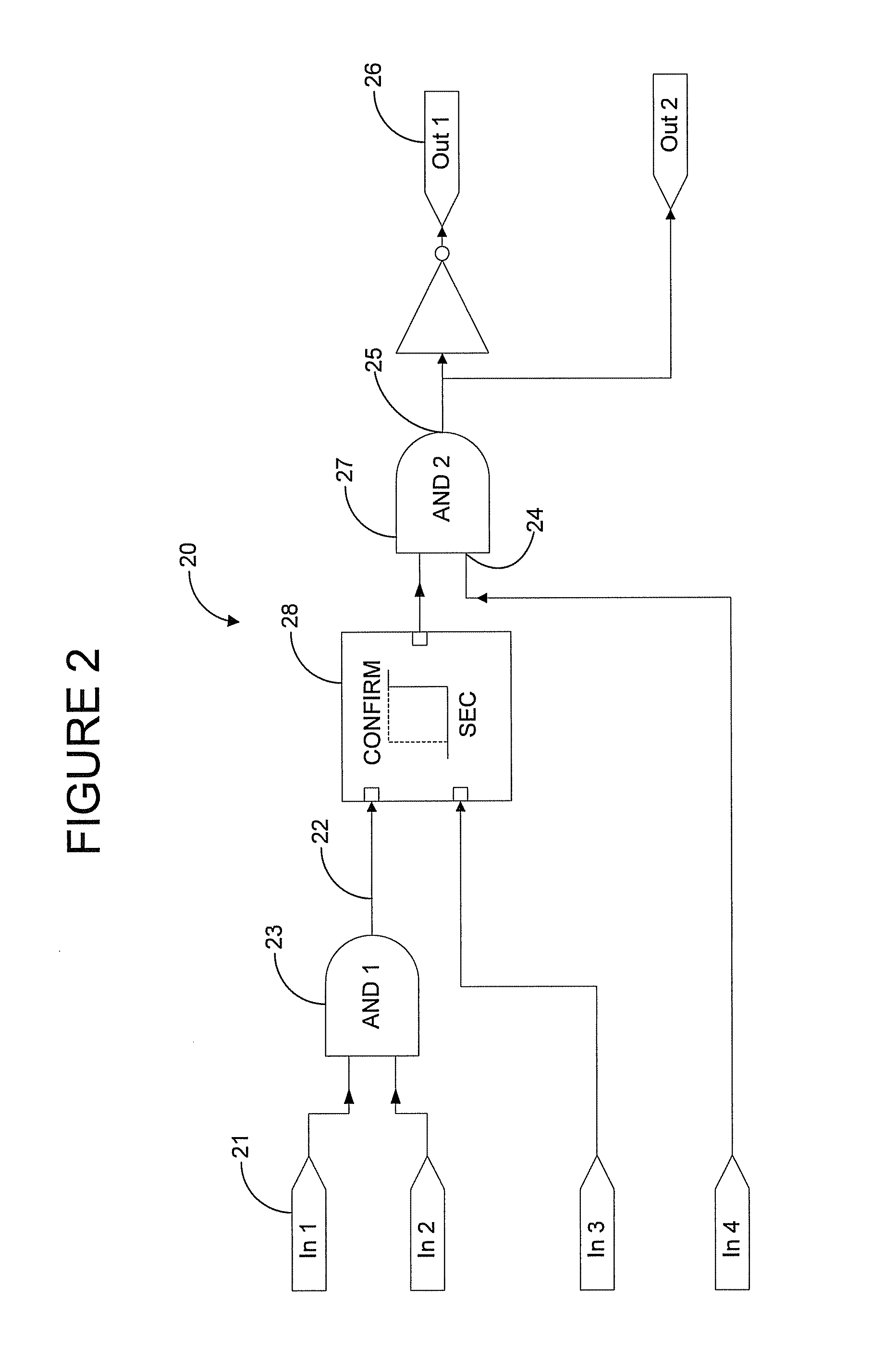Requirements-based test generation
a technology of requirements and test results, applied in the field of requirements-based test results, can solve the problems of futile further test generation and reduce the time and resources needed for verification, and achieve the effect of facilitating the achievement of do-178b objectives and reducing time and resources
- Summary
- Abstract
- Description
- Claims
- Application Information
AI Technical Summary
Benefits of technology
Problems solved by technology
Method used
Image
Examples
Embodiment Construction
[0013]This invention relates to the development and verification of systems designed using models and to be implemented in a combination of software and hardware. It should be understood that variations in form and detail may be made to the invention without deviating from the spirit and scope of the invention.
[0014]Implementation verification is one aspect of the overall development process for systems. As an example, FIG. 1 generally charts the development process of control systems. In step 10, a developer identifies a problem such as the need for a particular type of navigation control system and specifies high-level functional requirements for solving the problem. The developer correspondingly proceeds with the design of a system model in step 11, probably in collaboration with a team of developers. The result of step 11 is likely to be a functional model of a system that solves the problem specified in step 10.
[0015]In step 12, code may be generated from the model, either manu...
PUM
 Login to View More
Login to View More Abstract
Description
Claims
Application Information
 Login to View More
Login to View More - R&D
- Intellectual Property
- Life Sciences
- Materials
- Tech Scout
- Unparalleled Data Quality
- Higher Quality Content
- 60% Fewer Hallucinations
Browse by: Latest US Patents, China's latest patents, Technical Efficacy Thesaurus, Application Domain, Technology Topic, Popular Technical Reports.
© 2025 PatSnap. All rights reserved.Legal|Privacy policy|Modern Slavery Act Transparency Statement|Sitemap|About US| Contact US: help@patsnap.com



